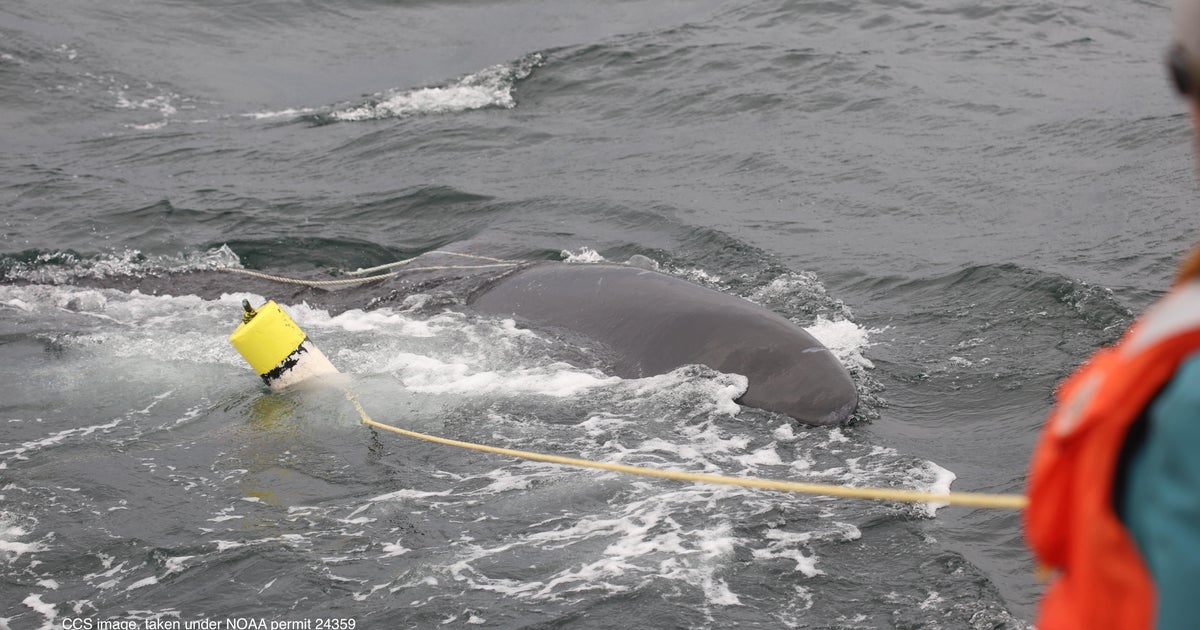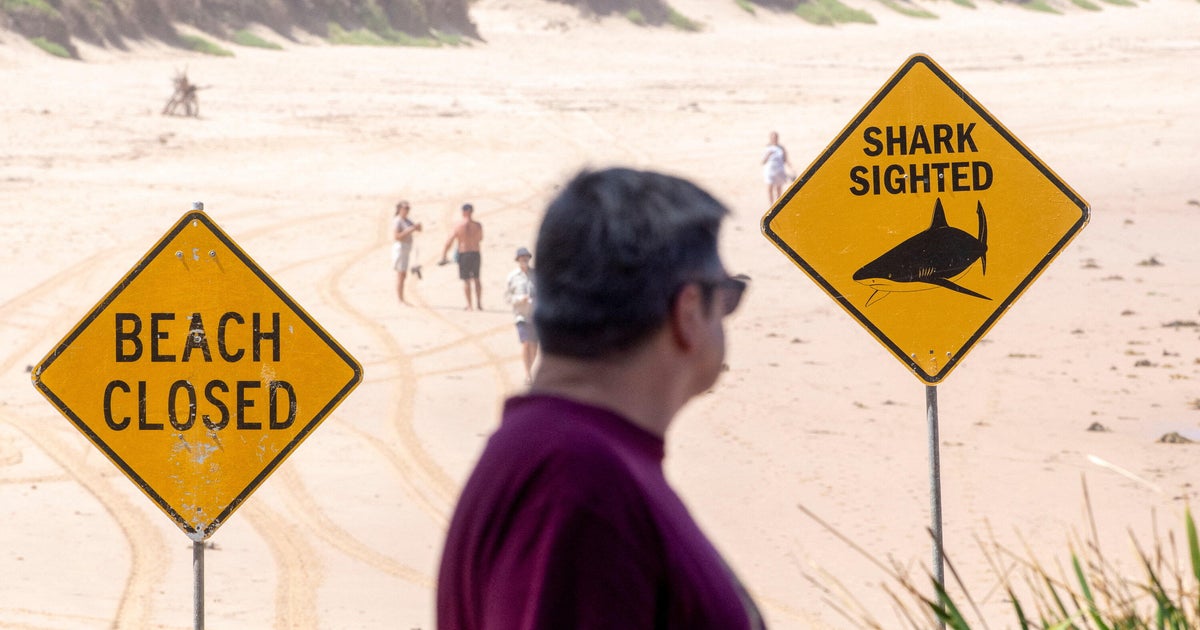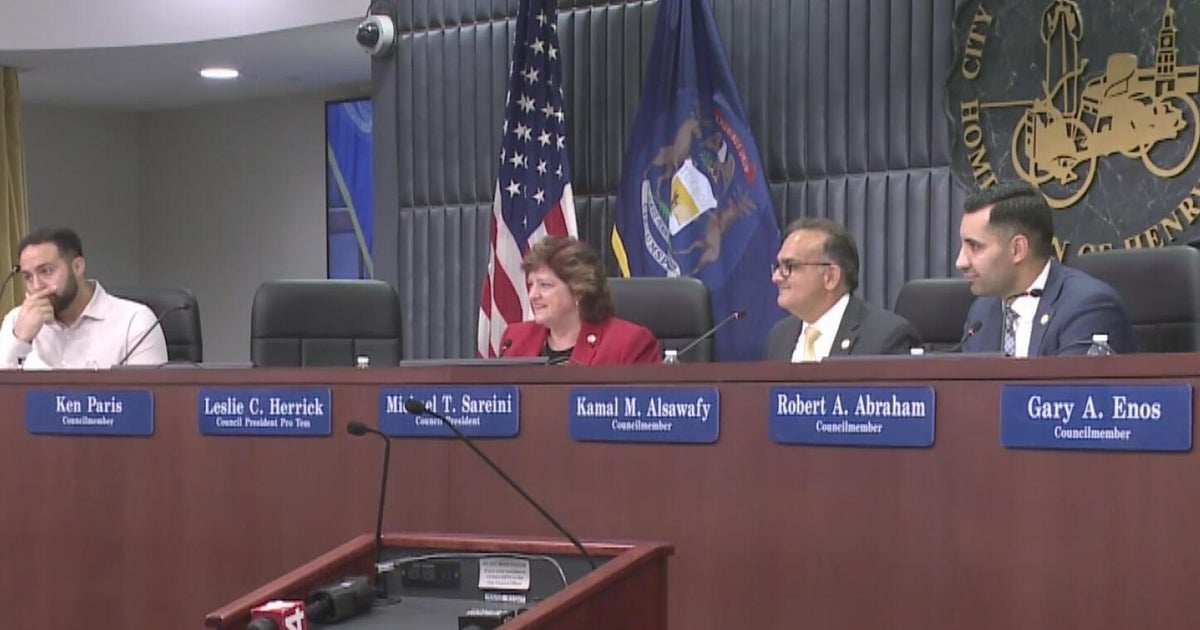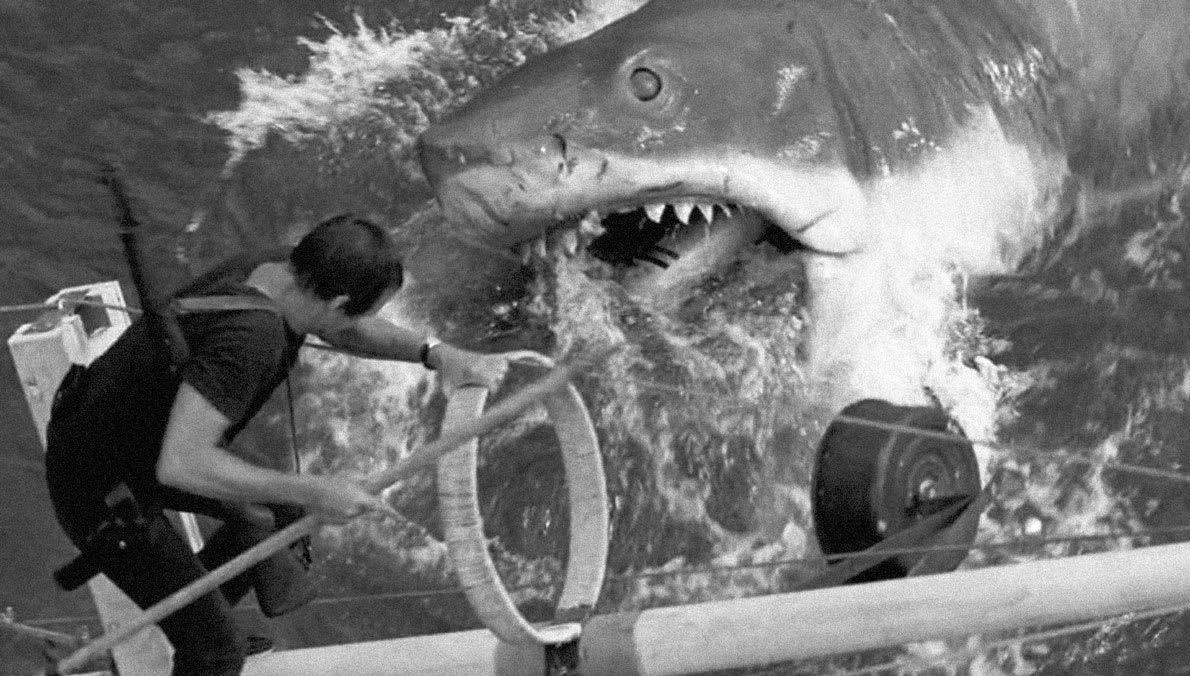Sharks and a tax on Airbnb-style rentals bite into Cape Cod summer season
A lamentable combination of sharks and taxes are scaring away would-be summer visitors to Cape Cod, Massachusetts.
The number of vacation home renters for the summer season is down by as much as 30% in some communities on the Cape, according to local real estate agents. Hotel, motel and bed & breakfast stays are down 5% Cape-wide through May, according to the Cape Cod Chamber of Commerce.
"I would say it's slow. Our numbers are down compared to the same period last year, and there is a multitude of reasons," Wendy Northcross, chief executive officer of the Cape Cod Chamber, told CBS MoneyWatch. "People are concerned that sharks are a deterrent, and we also have a new short-term rental tax that started in July."
Last year, Arthur Medici, 26, was killed by a great white shark while riding waves off Newcomb Hollow Beach in Wellfleet. His was the first shark-attack death in Massachusetts since 1936. More sharks have since been spotted off of the Cape, and lifeguards are urging visitors to be vigilant by swimming in groups and steering clear of seals. There has even been talk of culling the Cape's seal population to cut off sharks' food supply.
"At some level, it must have a psychological impact [on visitors]," Northcross said. "The new tax, sharks and bad weather are at the top of the list of deterrents."
The tax she refers to took effect July 1 under a new law that extends Massachusetts' hotel and motel tax to short-term home rentals via Airbnb and other rental sites -- and has had the effect of deterring some visitors, the Boston Globe reported.
"I think it has certainly had an effect," said Debra Martin of Mid Cape Rentals. "Some tenants feel they are paying a rental and cleaning fee and now they have to pay the tax."
"There is definitely fear mongering out there"
The South Yarmouth-based realtor hopes that visitors will adapt to the new law after a season or two. "I think that's a short-lived issue that people will become more used to. It will be part of their budget when they think about the summer after a season or two," she said.
Of course shark sightings don't help either. "People are afraid. They say, 'If I come down, will I be able to go in the ocean?'"
John Salsberg, who owns a second home in Wellfleet, says that for once, he's enjoying use of his own home after he tried but failed to rent it out for the week of June 29.
"For a family trying to rent for a week on the Cape, a 12.45% tax is prohibitively high," he said. "And I don't know about the sharks, but there is definitely fear mongering out there and I think that scares some people."
His rental income is down this year compared to previous seasons, but isn't seeking sympathy, acknowledging that "this is a first-world problem."
Still, the lost income can hurt. "This is not Florida where you've got four, five, six months of rentals, you've got eight weeks to make it," Cape Cod landlord Ed Wnorowski told CBS News Boston.
For the last 27 years, Wnorowski has owned a home in Harwich, Massachussets, that typically rents for five or six weeks. This year, he said, "we've only had one week occupied in July, and [for] August we have no rentals going forward."
It's hard to determine exactly how many people have been scared off by sharks, or even measure exactly how big of a deterrent the new tax has been.
"I do think the sharks play a part, but I don't now how big a part," said Kinlin Grover real estate agent Jane Booth. "We definitely had some repeat tenants call and say they weren't returning because the sharks scared their children," she said.
It's impossible to quantify how many would-be visitors never called in the first place.
"Somebody who would have been new to the Cape and read all the stories and decided to go elsewhere -- we don't know what is lost because they never reach out in the first place," Booth said. "It's an unknown."





